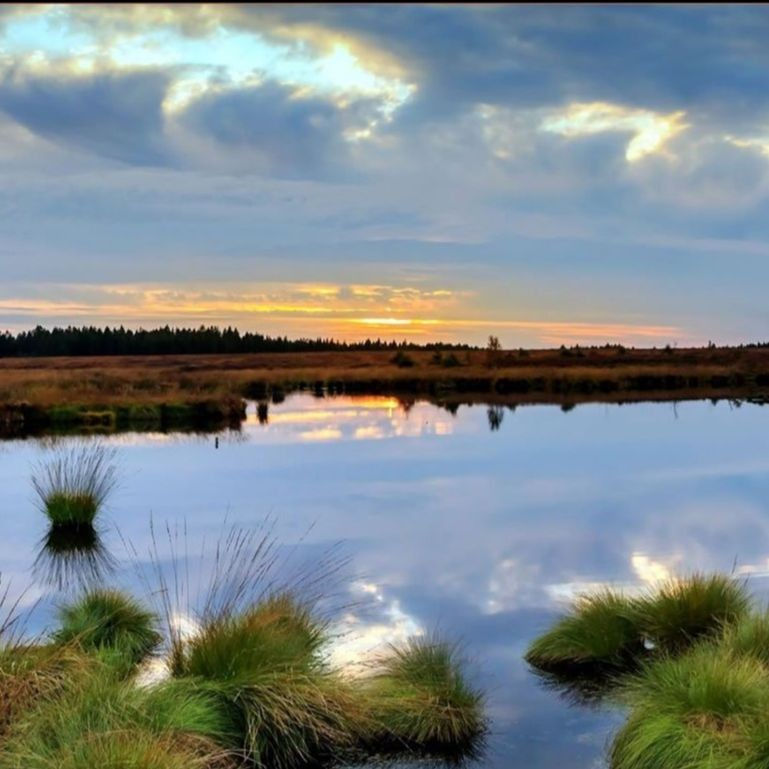The Economic Perspective 4/04/2025
- klarsen94
- Apr 4
- 5 min read
The Latest Trending Economic, Environmental and Infrastructure News Curated for You by The Balmoral Group
The Balmoral Group provides practical, professional and precise Economics, Data Analytics, and Engineering Consulting services and is part of a globally integrated team.
Happy Friday!
This week, TBG's Laila Racevskis and Valerie Seidel had the honor of attending the National Sentinel Landscape Coordinators national meeting hosted by Avon Park Air Force Range (APAFR) this week, working with Florida Wildlife Corridor and APAFR to advance military and natural resource priorities. Laila got to "pet the jet" and we were able to discuss Payments for Ecosystem Services with a very interested audience, as well as hear from local farmers on their challenges and mutual interests.
In this edition, we bring attention to the forthcoming guidance on the Waters of the United States and upcoming comment period, the tariffs enacted this week, underwater surveying efforts in Florida, and more. Additionally, in the PNW, we feature several articles relating to fish passages including the removal of culverts in Washington and the return of salmon after a historic dam removal in Oregon. Our data visualization shows the Agriculture Economic Barometer from Purdue.
Please feel free to forward this to anyone you think would be interested. If you’d like to view previous editions please click here, or to subscribe please click here!
Have a great weekend!



New WOTUS Guidance, Comments Due This Month
On March 24, 2025 the Federal Register announced forthcoming listening sessions on specific key topic areas to hear interested stakeholders' perspectives on defining “Waters of the United States” consistent with the Supreme Court's interpretation of the scope of Clean Water Act jurisdiction and how to implement that interpretation as the agencies consider next steps. Comments are due fast - by April 23, 2025. See the Federal Register for more Information. Image credit: U.S. EPA

Tariffs Enacted This Week
Tariffs enacted this week are the highest the world has seen since 1909, averaging 25%-30%. Some retaliatory measures are expected, with China already announcing additional tariffs. Economists state that the trade war could also be broadened by Europe in the services sector targeting Big Tech. The White House included baseline universal levies on top of those that already exist. According to the Trump Administration, the purpose of the tariffs is to reduce US trade deficit, restore American manufacturing, rectify unfair trade practices, and raise revenues. Read more at APNews and Financial Times. Image from: WSJ.

Underwater Drones Begin Surveying Uncharted Coastlines of Florida
A new initiative backed by the state of Florida has launched 2 underwater drones with the plan to map the largely unsurveyed Florida coastline. Managed and funded by the FDEP with $100 million in state funds, the Florida Seafloor Mapping Initiative aims to produce high resolution bathymetry, data of the depths and shapes of ocean terrain, to help provide new and updated nautical imagery. Currently focused on the Middle Grounds area near the shores of St. Petersburg, the initiative has begun collecting data with the goal to present its results to NOAA and the USCG by 2027. Read more at NBC Miami.

Washington State Senators Propose $5B Plan to Remove Culverts
In a follow-up to a previous story, on Monday, Washington State senators unveiled a proposal to spend five billion dollars over the next 15 years on culvert removal. The planned Senate Bill, if passed, would clear or remove around 300 culverts which are currently blocking fish passage. This plan comes after Washington Tribes and State officials entered mediation following, budget shortfalls and prioritization problems that have plagued previous efforts towards fish passage improvements. Senators have proposed in the new plan that the necessary funds come from bonds backed by revenue from an existing electrical utilities tax. Read more at Washington State Standard.

Salmon Return to Oregon's Klamath Basin After Historic Dam Removal
Salmon are returning to the Klamath Basin in Oregon after more than a century, following the removal of four hydroelectric dams. The historic dam removal, completed in October 2024, reopened over 400 miles of salmon habitat. Wildlife officials recently observed fall-run Chinook salmon above the former J.C. Boyle Dam, marking a major milestone for fish migration. However, the river’s headwaters remain blocked, and further restoration efforts are needed. The project, the largest dam removal in U.S. history, aims to revitalize fish populations and ecosystems while ongoing monitoring continues with tribal and conservation partners. Read More at OPB.

China's Scientists Rush to Climate-Proof Potatoes
China is the world largest producer of potatoes, but they are also vulnerable to heat and climate change. With this vulnerability, Chinese researchers are studying the effects of higher temperatures on the vegetable. Early results show that higher temperatures accelerate growth by 10 days but cut yield by half. Potato producers have begun investing in aeroponic systems where plants are grown in the air under controlled conditions. Higher demand for potato varieties that are heat and disease resistant has also become an issue. As troubles with climate change continue, researchers while continue to be under pressure to find ways to prevent blight and yield loss. You can read more at Reuters.

Machine Learning Model Created by WSU Researchers to Predict Virus Reservoirs
A team of researchers from Washington State University has developed a machine learning model, which analyzes host characteristics and virus genetics to identify possible animal reservoirs and geographic areas, where new outbreaks are more expected to happen. This model could help scientists predict the species that pose the greatest zoonotic threats, and enable them to take the necessary proactive measures to combat pandemics. The model was developed with a special focus on orthopoxviruses, including viruses that cause smallpox and mpox. It provides a better view of how viruses could spread across species than the previous models. Read more at WSU.
Data Visualization of the Week
Purdue's Latest Ag Economy Barometer Indicates Shift in Focus from Farmers
In the latest Purdue Ag Economy Barometer, trade policy is generally at the top of mind for farmers and is revealing itself in producer sentiment. Concerns over trade, tariffs, and profitability weighed heavily this past month. Results show a declining confidence in the future among farmers as the index has fallen 12 points (even though still 25 points higher than back in October) while producers’ expectations for exports in the next five years reached an all-time low. Policy priorities within the producer community are also shifting as trade policy has overtaken interest rate policy in importance. Back in August, 22% of respondents to the survey chose interest rate policy as their top concern, with 20% choosing trade policy. Now, 43% chose trade policy and 10% interest rate policy priority. The visual below indicates the Ag Economy Barometer provided by the Purdue Center for Commercial Agriculture. Read More at Ag Web.






Comments